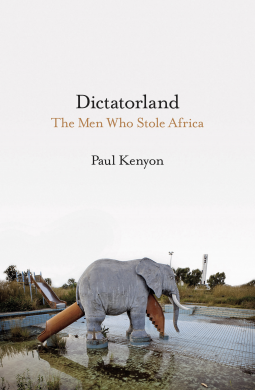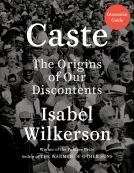
Dictatorland
The Men Who Stole Africa
by Paul Kenyon
This title was previously available on NetGalley and is now archived.
Send NetGalley books directly to your Kindle or Kindle app
1
To read on a Kindle or Kindle app, please add kindle@netgalley.com as an approved email address to receive files in your Amazon account. Click here for step-by-step instructions.
2
Also find your Kindle email address within your Amazon account, and enter it here.
Pub Date Oct 01 2018 | Archive Date Jan 09 2018
Description
The dictator who grew so rich on his country's cocoa crop that he built a 35-story-high basilica in the jungles of the Ivory Coast. The austere, incorruptible leader who has shut Eritrea off from the world in a permanent state of war and conscripted every adult into the armed forces. In Equatorial Guinea, the paranoid despot who thought Hitler was the savior of Africa and waged a campaign of terror against his own people. Behind these stories of violence and excess lie the dark secrets of Western greed and complicity, the insatiable taste for chocolate, oil, diamonds and gold that have encouraged dictators to rule with an iron hand, siphoning off their share of the action into mansions in Paris and banks in Zurich and keeping their people in dire poverty.
A Note From the Publisher
Apologies but this title is not available in the US and Canada so requests from those regions cannot be approved.
Available Editions
| EDITION | Other Format |
| ISBN | 9781784972134 |
| PRICE | $34.95 (USD) |
| PAGES | 432 |
Average rating from 5 members
Featured Reviews
 Greg Y, Reviewer
Greg Y, Reviewer
British journalist Paul Kenyon delivers a compelling slice of contemporary history in Dictatorland. The book looks at the men who led African nations out of colonial exploitation, only to betray their people and enrich themselves. The post-colonial history of countries such as Zimbabwe, Congo, Libya, Nigeria, Cote d'Ivoire, Ghana, Equatorial Guinea and Eritrea are covered, as well as the exploitation of various resources: diamonds, gold, oil, chocolate and slavery.
Kenyon's account of what these men did to their people is chilling and the sheer indifference of Western companies to the human suffering their business causes, to this very day, is horrifying. The rampant greed and savagery on display defies belief, and this is by no means in the past; it continues to this day.
If this book lacks anything, it would be the lack of a unifying theory underlying these horrible histories. Why is post-colonial Africa "Dictatorland"? Why have these savage dictators thrived in some African countries but in others, such as South Africa, similar experiences have not arisen, or at least not to the same degree. However this is still a first-rate piece of journalism and modern history, thoroughly worth the read.
 Hannah S, Reviewer
Hannah S, Reviewer
My knowledge of 20th Century history is spotty at best. There are things I am reasonably well-informed about but large parts of history I have cursory knowledge of. The history of Africa is one of those areas (and even typing this makes me cringe - I have to admit to not knowing a lot about a whole fricking continent) and I was very eager to remedy this. As a starting point this book is absolutely perfect. Paul Kenyon manages to give enough of an overview to situate me to then give enough details to keep my interest.
The book is a reasonably comprehensive history of several countries and manages to also connect these parts to a greater whole that gave me a greater understanding how these different dictatorships happened (or are still happening is some cases). We get a greater look into such varied countries as Zimbabwe, Congo, Libya, Nigeria, Cote d'Ivoire, Ghana, Equatorial Guinea and Eritrea. Paul Kenyon structures his book by way of resources the countries own and how these influenced the histories. Starting with diamonds and gold, continuing with oil, talking about cocoa to then show the weird, tragic case of Eritrea where it is not even known what resources might be found there.
There are some things these countries all have in common: the way in which colonialism wrecked them, the way in which other powers influenced them (often in the way of proxy wars in the Cold War era), and the way in which power corrupted people who could were considered heroes beforehand. It is an endlessly bleak and frustrating history and one that made me think more than once how much people can suck. It is due to Paul Kenyon's wonderful storytelling sensibilities that I managed to keep reading despite the bleak subject matter.
The things that did not quite work for me are probably not fair: for one I sometimes struggled with the structure of the chapters, the timeline was not always very clear and I did not always find the thread connecting these different scenes. However, it is near impossible to tell of history in a neat narrative because history is not neat but rather messy. I would also have liked the sources to be clearer and more extensive. I work in academia and as such I am more used to academic writing which this is not.
Overall, impeccably researched, super readable, important book.
I received an arc of this book courtesy of NetGalley and Head of Zeus in exchange for an honest review.




